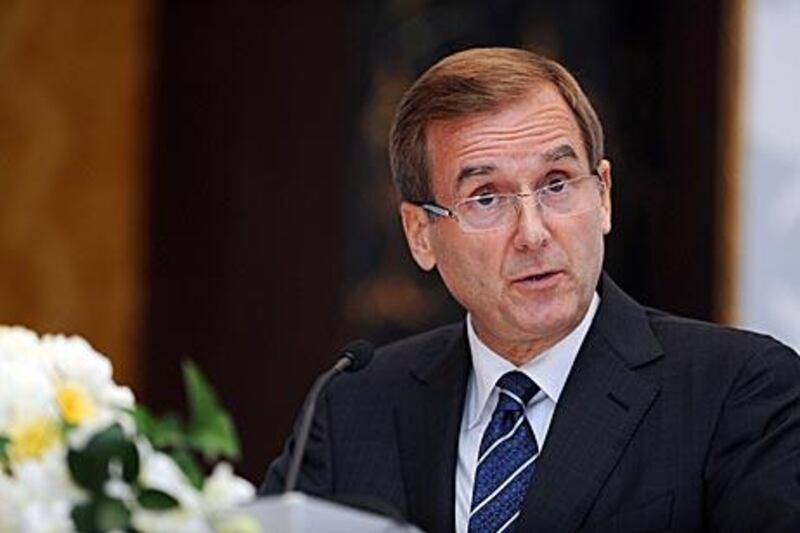Overhauling insurance regulations in the region is essential in the aftermath of the financial crisis, says the chief executive of Dubai Financial Services Authority (DFSA).
"This is a difficult task but an essential one if we are to meet the expectations of the international community," Paul Koster said during a speech in Dubai yesterday.
The downturn already provided the momentum to develop a set of global standards for the sector, he said.
He was speaking as insurers from around the world gathered in the emirate to discuss how to better regulate the industry at the annual conference of the International Association of Insurance Supervisors.
Responsible for regulating the insurance and reinsurance sector within the Dubai International Financial Centre (DIFC), the DFSA was engaging with international regulators to ensure that new standards take proper account of jurisdictions such as the DIFC, he said. A total of 19 firms are authorised to engage in insurance-related activities within the DIFC.
The sector is an area of high growth in the UAE, with premiums expanding by 10 per cent last year despite the crisis. As the industry grows, regulators are pushing for stricter rules and putting pressure on companies to show stronger financial backing.
Globally, changes to the industry are also gathering momentum. The greatest focus on rebalancing the financial system has been on banks after lenders were criticised for their role in creating the crisis.
Nonetheless, the problems related to American Insurance Group sparked concerns about systemic risks within the global industry. The US Federal Reserve was forced to pump US$170 billion (Dh624.38bn) into the US insurer to save it from bankruptcy due to its extensive global interests within the financial services industry.
"Even through insurance companies came through relatively unscathed we need to understand how they can avoid becoming involved in future crises," said Lord Adair Turner, chairman of the Financial Services Authority in the UK.
"It's important that international regulators are in a better position to understand systemic risks within insurance and banks," he said. Enhanced capital bases to absorb potential losses are among measures being brought in by regulators in the US and Europe.
The UAE's Insurance Authority has introduced rules since the end of last year requiring insurance brokers selling insurance policies but not underwriting them to hold at least Dh1 million in capital. They also have to take out insurance to protect clients.
The authority had a "quite aggressive programme" to overhaul insurance regulation in the UAE, with both improved regulations and a heightened level of supervision, said Mr Koster.
Axel Lehmann, the chief risk officer for the global insurer Zurich Financial Services Group, lauded the efforts in improving the regulatory environment in the Gulf and said there were opportunities for further growth in the region.
"This is a region that is set up for growth," he said. "Even with the difficulties here in Dubai, the region has fared relatively well and we see opportunities within the corporate, commercial side."
Even though the UAE has the third highest insurance penetration rate among emerging markets, with total premiums of around 2.5 per cent of GDP, the country still lagged behind Europe and North America, said Mr Koster.





